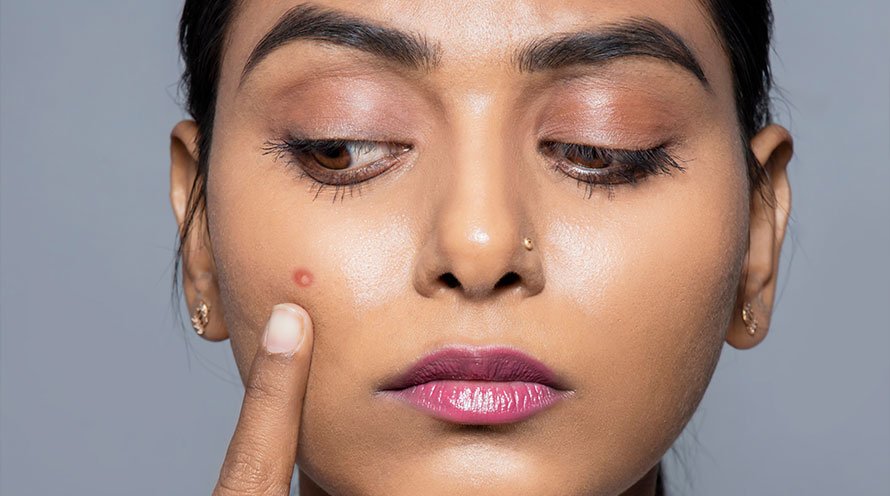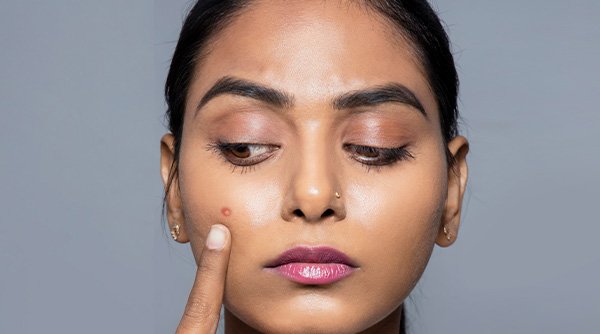Understanding the Causes of Adult Acne
Adult acne is a common skin concern that can be both frustrating and confusing. While often associated with teenage years, breakouts can persist or even start in adulthood. To treat it effectively, it’s important to understand the causes of adult acne and how they can differ from those of adolescent acne. In this article, we’ll explore the key causes of adult acne and practical solutions to help you achieve clearer, healthier skin.
Causes of Adult Acne
• Hormonal Fluctuations - Changes in hormones, such as during puberty, menstruation, or menopause, can increase oil production and lead to breakouts.
• Stress and Lifestyle - High stress levels and poor sleep disrupt hormonal balance, often triggering or worsening acne.
• Poor Dietary Habits - Diets high in sugar, dairy, or processed foods can contribute to inflammation and excess sebum production.
• Medical Conditions and Medication - Certain conditions like PCOS or medications such as steroids and birth control can cause or aggravate acne.
• Poor Skincare and Product Buildup - Using the wrong products or not cleansing properly can clog pores, leading to breakouts and skin irritation.
• Environmental Triggers - Pollution, humidity, and exposure to harsh weather can increase skin sensitivity and acne flare-ups.
What are the Different Causes of Adult Acne?
There are different causes of adult acne, and they can be internal, external, or environmental. Let’s explore them in detail.
• Hormonal Fluctuations
Hormonal changes-especially in women—are a major contributor to adult acne. Fluctuations during menstruation, pregnancy, menopause, or even due to discontinuing birth control pills can stimulate excess sebum production, clog pores, and cause breakouts.
• Stress and Lifestyle
Stress increases cortisol levels in the body, which in turn can lead to increased oil production and inflammation. This chain reaction can worsen skin issues and trigger persistent breakouts, making stress one of the key causes of adult acne.
• Poor Dietary Habits
Certain foods—especially those with a high glycaemic index-can contribute to acne. Dairy and processed sugars can spike insulin, which increases oil production and inflammation, adding to the different causes of acne.
• Medical Conditions and Medication
Conditions like PCOS and medications such as corticosteroids, lithium, and anticonvulsants can also cause acne. These are important different causes of acne that often require a doctor’s intervention.
• Poor Skincare and Product Buildup
Using skincare or makeup products that are comedogenic (pore-clogging) can lead to acne. Adults with sensitive or oily skin must be particularly cautious when choosing cosmetics and skincare products. Ingredients like silicones, heavy oils, or alcohol can trigger breakouts.
Double cleansing, using non-comedogenic products, and regularly cleaning makeup tools can reduce the causes of adult acne linked to skincare habits.
• Environmental Triggers
Air pollution, exposure to toxins, and even the weather can wreak havoc on your skin. These environmental factors clog pores and cause oxidative stress, increasing the risk of acne. This is another major contributor to the causes of adult acne in urban settings.
Regular exfoliation, antioxidant vitamin C-rich face serums, and SPF use can help protect the skin from these environmental stressors.
Solutions to Combat Adult Acne
Addressing adult acne requires a multifaceted approach, combining lifestyle changes, skincare routines, and, in some cases, medical interventions.
• Anti-Acne Skincare Routine
Gentle Cleansing
Using a gentle face cleanser supports a refreshed and balanced complexion without stripping away essential oils.
Pro Tip: Use a mild, non-comedogenic cleanser twice daily to remove excess oil, acne and impurities without irritating the skin.
Exfoliation
Incorporate chemical exfoliants like salicylic acid or glycolic acid 2–3 times a week to unclog pores and remove dead skin cells.
Moisturizing
Even acne-prone skin needs proper hydration. Choose the right type of moisturizer based on your skin type—gel-based moisturizer, oil-free options work well for oily skin, while cream-based moisturizers with ceramides or hyaluronic acid suit dry skin. For combination skin, go for lightweight, water-based formulas that balance hydration without clogging pores. A good moisturizer supports the skin barrier and helps regulate oil production.
Sun Protection
Apply a broad-spectrum super UV sunscreen daily to protect your skin from UV damage, which can aggravate acne and lead to dark spots.
Hydrating Serums
Look for face serums with ingredients like vitamin C that help retain moisture and support skin healing without clogging pores, and remove dark spots.
• Lifestyle Habits for Clearer Skin
Avoid Acne-Causing Food
Avoid acne-causing foods!, which are known to trigger or worsen acne. Limit intake of high-sugar items, dairy, and processed foods.
Follow a Skin-Friendly Diet
Eat more whole, unprocessed foods rich in antioxidants and anti-inflammatory properties, such as leafy greens, berries, nuts, seeds, and omega-3-rich fish.
Stay Hydrated
Drink at least 2–3 litres of water daily. Hydrated skin flushes out toxins more efficiently and maintains a healthy oil balance.
Manage Stress
Chronic stress raises cortisol levels, which can trigger breakouts. Practice yoga, deep breathing, or meditation regularly to manage stress naturally.
Get Quality Sleep
Poor sleep disrupts hormonal balance. Aim for 7–8 hours of restful sleep each night to give your skin time to heal and regenerate.
Maintain a Clean Environment
Regularly wash pillowcases, towels, and makeup brushes. Sanitize your phone screen and avoid touching your face to prevent bacteria transfer.
Dealing with acne as an adult can be frustrating, especially when it seems to appear out of nowhere. However, acne in adulthood is more common than many realise, and it's often linked to a combination of lifestyle choices, hormonal changes, environmental factors, and underlying health issues.
Understanding the causes of adult acne is essential for finding the right solution. Whether it's stress, hormonal fluctuations, or the wrong skincare products, recognising your triggers is the first step toward healthier, clearer skin.
By identifying the different causes of acne, sticking to a tailored skincare routine, making healthy lifestyle changes, and seeking professional help when needed, you can effectively manage adult acne. Remember, there’s no one-size-fits-all solution-your skin deserves a personalised approach.


